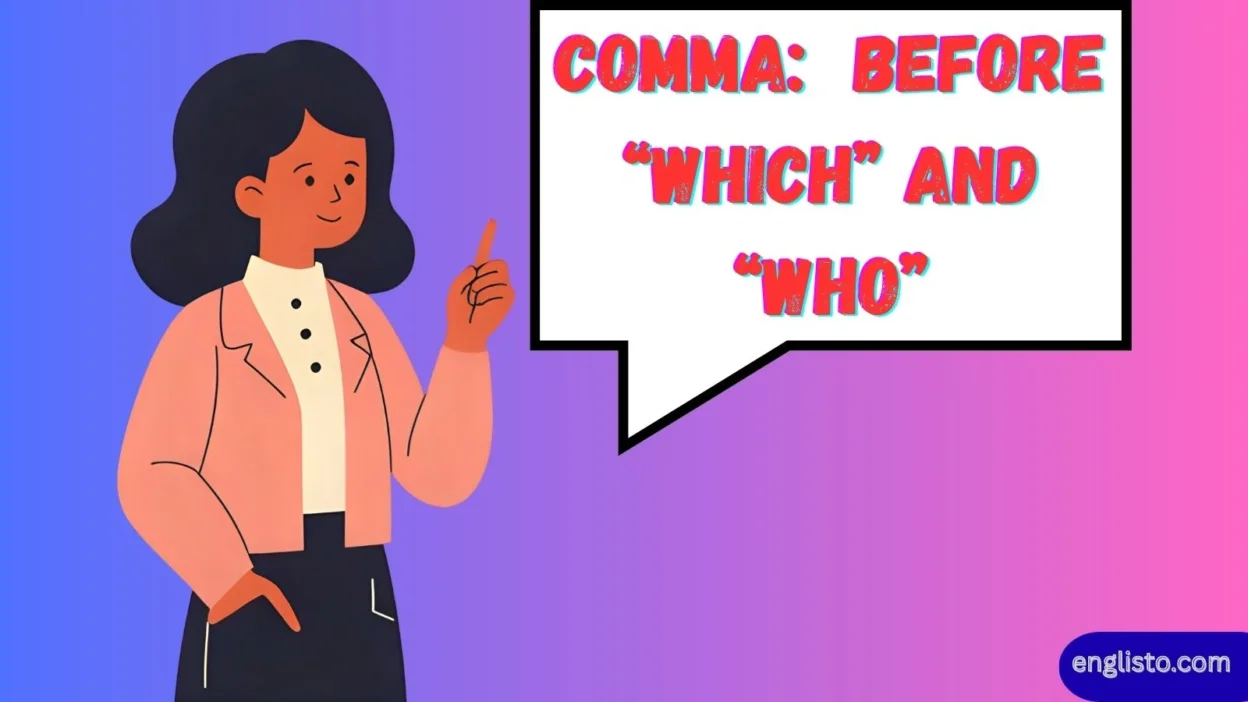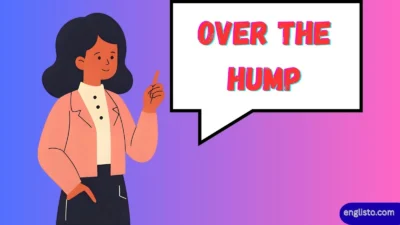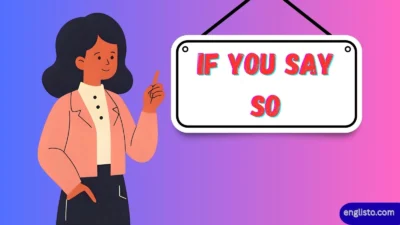Punctuation marks are more than decorative symbols; they carry meaning. A well-placed Comma: Before “Which” and “Who” can:
- Clarify thoughts
- Prevent misinterpretation
- Create rhythm in writing
- Separate essential from non-essential details
Think of commas as traffic signals for your sentences. They tell the reader when to pause, where to slow down, and how to navigate complex ideas.
Without commas, the sentence “Let’s eat, grandma” turns into “Let’s eat grandma.” The difference is life or death—literally.
In discussions of commas before which and who, the stakes aren’t always that high, but the impact on clarity is huge.
Relative Pronouns: What Are “Which” and “Who”?
Relative pronouns connect clauses to nouns. They introduce extra details or define something precisely.
- Which → refers to things.
- Example: The car, which had a flat tire, was parked outside.
- Example: The car, which had a flat tire, was parked outside.
- Who → refers to people.
- Example: My uncle, who is a doctor, lives in Paris.
- Example: My uncle, who is a doctor, lives in Paris.
These words act as bridges. Whether you put a comma before them depends on whether the information is essential (restrictive) or extra (non-restrictive).
The Golden Rule: Restrictive vs. Non-Restrictive Clauses
This is where most confusion begins.
- Restrictive Clause → Defines or identifies the subject. No commas.
- Non-Restrictive Clause → Adds extra details. Needs commas.
| Clause Type | Definition | Comma Rule | Example |
| Restrictive | Essential info that identifies the subject | No comma | The student who studies hard will pass. |
| Non-Restrictive | Extra info that can be removed | Use commas | James, who studies hard, always gets good grades. |
Think of commas as a pair of brackets. If you can remove the words between commas and the main sentence still makes sense, you’re dealing with a non-restrictive clause.
Comma Before “Which”: The Detailed Guide
In American English, which almost always introduces a non-restrictive clause. That means you’ll usually see a comma.
- Correct: I bought a new Ford Focus, which I’ll drive to Boston.
- Wrong: I bought a new Ford Focus which I’ll drive to Boston.
In British English, however, which can introduce either type of clause.
- British restrictive example: I bought the book which was published in March 2023.
- American rewrite: I bought the book that was published in March 2023.
Rule of thumb:
- In the US → Use that for restrictive, which (with a comma) for non-restrictive.
- In the UK → Which can do both jobs. Context matters.
Comma Before “Who”: The Detailed Guide
Unlike which, who appears in both restrictive and non-restrictive clauses. The comma rule depends entirely on context.
- Restrictive (no comma): The student who won the award traveled to Vietnam.
- Non-Restrictive (with comma): Emily, who has traveled to 20 countries, won an award.
Notice the difference? In the second sentence, Emily’s identity is already known. The clause just adds flavor. In the first, the clause identifies which student.
Practical Examples: Sentences That Clarify the Rules
- My brother who lives in New York is visiting. (Restrictive → I have more than one brother.)
- My brother, who lives in New York, is visiting. (Non-restrictive → I have only one brother, and here’s extra info.)
- The car that had a flat tire was fixed. (Restrictive)
- The car, which had a flat tire, was fixed. (Non-restrictive)
One tiny comma changes the meaning.
Common Mistakes and How to Avoid Them
- Mistake 1: Adding commas everywhere.
- Mistake 2: Omitting necessary commas.
- Mistake 3: Mixing up British and American rules.
Quick Fix: Test by removing the clause. If the sentence still makes sense, use commas. If not, don’t.
British vs. American Usage: Subtle Differences
| Region | Restrictive | Non-Restrictive |
| US | Prefer that (no comma) | Prefer which (with comma) |
| UK | Which can be restrictive (no comma) | Which can also be non-restrictive (with comma) |
Stylistic Choices and When Rules Bend
Writers sometimes break rules for rhythm, emphasis, or style. For example:
- My grandmother, who loved coffee, always said, “Life’s too short for bad cappuccino.”
Here, the comma adds warmth and flow.
Real-Life Examples from Literature and Everyday Writing
- Jane Austen, Pride and Prejudice: Mr. Darcy, who never dances, stood apart.
- Travel blogs: Vietnam, which boasts rich history, attracts millions of visitors.
- News: William Scott, a millionaire in the 1980s, donated millions of pounds.
Writers across centuries use commas before which and who to add nuance.
Tables for Quick Reference
Comma Before “Which”
| Usage | Example | Explanation |
| US Restrictive | The book that won the award was new. | Use that, not which. |
| US Non-Restrictive | The book, which won the award, was new. | Use commas. |
| UK Restrictive | The book which won the award was new. | Acceptable in UK. |
Comma Before “Who”
| Usage | Example | Explanation |
| Restrictive | The teacher who lives in Scarborough is strict. | Identifies the subject. |
| Non-Restrictive | Mr. Baker, who lives in Scarborough, is strict. | Adds extra detail. |
Advanced Insights: Precision, Nuance, and Clarity
Commas aren’t just grammar rules; they’re stylistic tools.
- They prevent ambiguity.
- They alter tone and flow.
- They guide the reader’s interpretation.
Writers who master this distinction can shift meaning with one small mark.
Exercises to Test Your Understanding
Try inserting commas where necessary:
- The cookies Jane baked this morning were delicious.
- My uncle who is a doctor works in Paris.
- The city which overlooks the valley is beautiful.
Answers:
- The cookies Jane baked this morning were delicious. (No commas, restrictive)
- My uncle, who is a doctor, works in Paris. (Non-restrictive)
- The city, which overlooks the valley, is beautiful. (Non-restrictive)
FAQ: Comma Before “Which” and “Who”
Q1: Do I always need a comma before “which”?
No. In US English, yes for non-restrictive clauses. In UK English, not always.
Q2: Can I use “who” without a comma?
Yes, when the clause is restrictive.
Q3: What’s the easiest way to check?
Remove the clause. If the sentence still makes sense, use commas.
Q4: Why do British and American rules differ?
Stylistic tradition. Americans prefer “that” for restrictive clauses, while Brits allow “which.”
Q5: Is it wrong to break these rules?
Not always. In literature and casual writing, style sometimes outweighs strict rules.
Conclusion: Mastering Comma Placement for Better Writing
The humble comma before “which” and “who” carries weight. It decides whether details are essential or simply supplementary. It influences rhythm, clarity, and even meaning.
- In US English → that (restrictive, no comma) / which (non-restrictive, with comma).
- In UK English → which can serve both functions.
- With who → Commas depend on whether the clause is defining or extra.
Mastering these distinctions ensures your writing is clear, precise, and professional. A single Comma can change the outcome of your sentence—so place it wisely.



